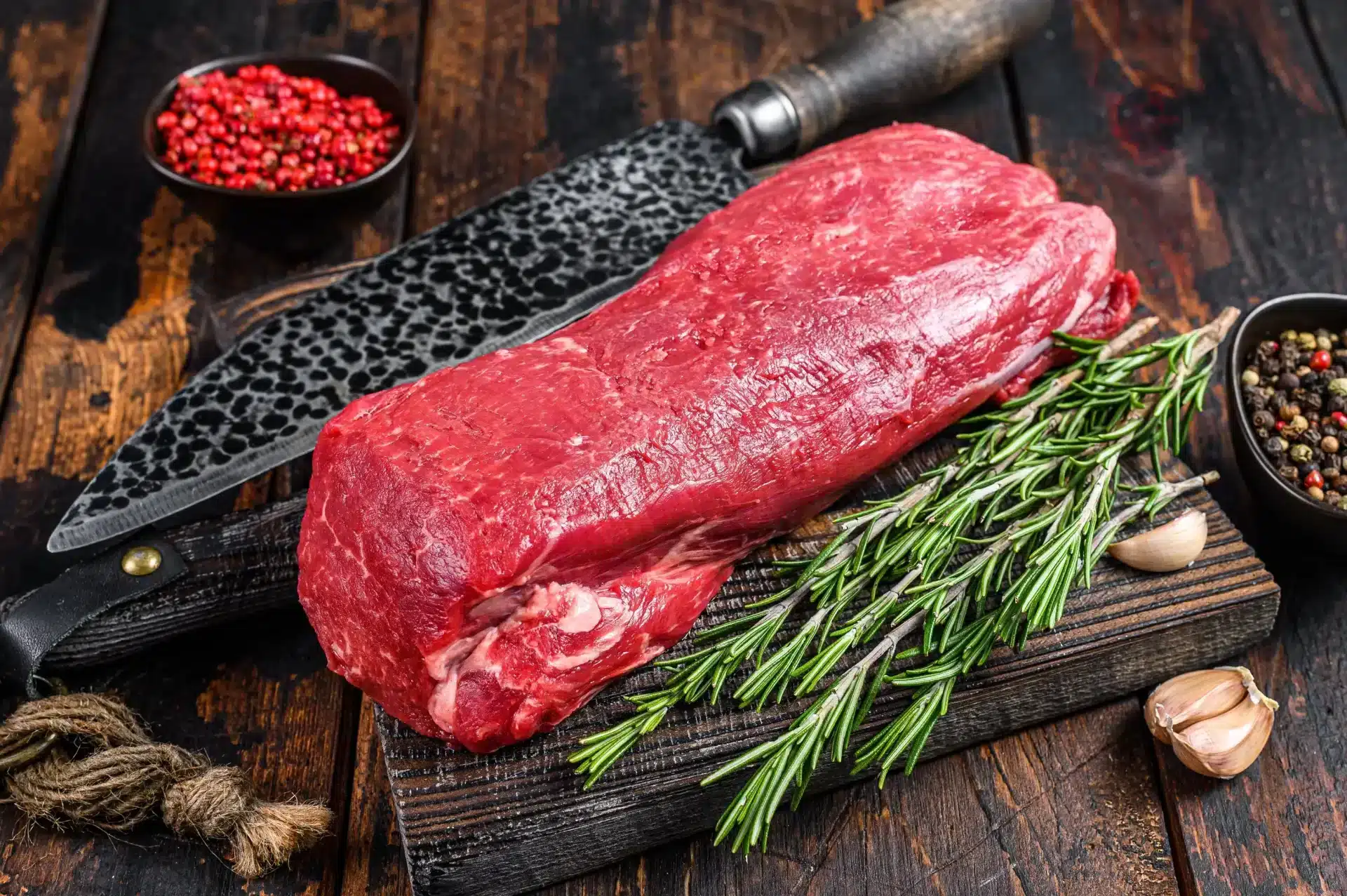In a recent article about Citicoline, I mentioned Nectar – an injectible mix of Citicoline and L-Carnitine. While it might not be a miracle pill for weight loss, its potential benefits for athletes and those with active lifestyles are worth noting. L-Carnitine, a naturally occurring amino acid derivative, is crucial in energy production. It helps transport fatty acids into the mitochondria, which can be burned for energy, making it a popular supplement among athletes looking to enhance their performance and support their body composition goals.
For athletes, the benefits of L-Carnitine extend beyond just aiding in weight management. By boosting mitochondrial function, it may help improve endurance and reduce fatigue, which is particularly valuable during intense training sessions or competitions. Moreover, some studies suggest that L-Carnitine supplementation can accelerate recovery times and reduce muscle soreness, allowing you to train harder and more frequently.
Sounds good, right? Let’s dive a little deeper.
The Science Behind L-Carnitine and Fat Metabolism
Imagine your cells as intricate factories, each buzzing with its unique tasks. Within these bustling hubs, the mitochondria act as power plants, generating the energy that fuels every bodily function. But how do these powerhouse organelles harness the energy peeking out from the molecular chaos? Here steps in L-Carnitine, a transport master, diligently ferrying long-chain fatty acids into mitochondrial matrices where they are broken down or oxidized to produce the ATP that every cell craves. This metabolic dance is essential for converting fat into usable energy, a process paramount for peak athletic performance and endurance.

While our bodies naturally produce L-Carnitine from the amino acids lysine and methionine, the demands of rigorous sports and physical training can necessitate additional intake. A deficiency here can stall the energy production machinery, leaving one fatigued and lethargic—effects no athlete wishes to contend with. Supplementing with L-Carnitine can thus ensure your cells operate at full throttle, empowering you to last longer in sports, recover faster, and even improve overall workout efficiency.
It plays a crucial role in the production of energy by transporting fatty acids into mitochondria
The marvel doesn’t end here; L-Carnitine’s benefits extend beyond fat metabolism. It’s believed to play a role in modulating insulin sensitivity and influencing the genes integral to sugar metabolism. Fascinatingly, some studies suggest it enhances the function of the pancreatic beta cells, contributing to more balanced and efficient energy utilization from carbohydrates alongside fat.
The critical impact of L-Carnitine on mitochondrial function cannot be overstated. These organelles, the veritable energy dynamos, require a steady influx of fatty acids to maintain their output. Through this vital role, L-Carnitine sustains and potentially amplifies our energy reserves, making it an invaluable ally in daily life and the high-stakes arena of athletic competition.

Effective Dosage: How Much L-Carnitine Should You Take?
The optimal dosage of L-Carnitine balances getting benefits without overdoing it. Research shows a safe and effective range from 500 to 4000 mg daily. Always start low and see how your body reacts before increasing.
To build muscle and lose fat, take L-Carnitine with your workouts. Aim for about 2000 mg (2 grams) per day. This fits well with a good exercise routine and can help you recover after training.
L-Carnitine is typically taken in doses ranging from 500 mg to 2,000 mg per day
If you go beyond the safe limit, research shows doses up to 4500 mg per day are usually safe, but it’s not necessary and could cause mild side effects like heartburn or indigestion. The right dosage is personal. Listen to your body and find what works best for you.
Timing Matters: When to Take L-Carnitine for Best Results
When it comes to unlocking the full potential of L-Carnitine, timing is everything. Picture this: a master conductor orchestrating a symphony, each note hitting at the precise moment, culminating in harmonious perfection. Similarly, the timing of your L-Carnitine intake can harmonise and elevate your athletic performance and fat metabolism.
To begin with, consider taking L-Carnitine around one hour before your workout. Why? Studies suggest that this timing allows your body enough time to absorb and utilise the supplement effectively. Think of it as priming the engine before a race – you want all cylinders firing as you step into the gym or onto the field. An ideal pre-workout dose ranges from 1,000 to 4,000 mg, but starting on the lower end and gradually increasing can help you gauge the right amount for your needs.
An equally compelling strategy is to ingest L-Carnitine post-exercise. Having been taxed to their limits, your muscles are now like sponges ready to soak up nutrients to aid recovery and growth. Taking L-Carnitine after your training session can support muscle repair and reduce soreness, enabling you to return to training with minimal downtime.
But what about rest days? Even when you’re not hitting the gym, your body works tirelessly to build and repair. On these occasions, consider sipping on your L-Carnitine with your morning meal. This approach may help you maintain a steady supplement level, ensuring it continues to aid in fat metabolism and muscle recovery even as you rest.
Timing, as with many things in life, involves a bit of trial and error. Listen to your body and observe its responses; you’ll soon find the sweet spot that works best for you.
Top Sources of L-Carnitine: From Food to Supplements
When we envisage the varied sources of L-Carnitine, a vivid tapestry of nourishment unravels before us. On one side, we have nutrient-dense animal products brimming with L-Carnitine. Imagine a sumptuous piece of beef glowing with potential, not just as a source of protein but as a wellspring of this transformative amino acid. Beef stands as a bastion of L-Carnitine, significantly surpassing the meagre offerings of plant-based foods. Every bite of a juicy steak or a spoonful of creamy whole milk is a step towards enhancing your body’s L-Carnitine reservoir.
Among the most potent sources are:
- Beef: Approximately 56-162 mg per 4 ounces.
- Whole Milk: About 8 mg per cup, a gentle, nourishing dose.
- Codfish: A lean choice with around 4-7 mg per 4 ounces.
- Chicken Breast: Providing 3-5 mg per 4 ounces, a delicate balance of nutrients.
- Cheese: Variable, but often around 3 mg per 2 ounces, a creamy indulgence.
- Ice Cream: Surprisingly, about 3 mg per half cup can be found in this delightful treat.
But what if our lifestyles or dietary preferences steer us away from these traditional sources? Enter the realm of supplementation. L-Carnitine supplements encapsulate the essence of these foods, offering a concentrated, accessible form of this vital nutrient. These supplements typically manifest in various forms, each catering to a distinct need and absorption profile.

The classical L-Carnitine supplement is widely favoured for its general benefits, particularly in supporting fat metabolism and energy production. Yet, athletes and those driven by performance often find their gaze drawn to a more refined variant: Acetyl-L-Carnitine. This form not only aids in physical performance but crosses the blood-brain barrier, potentially enhancing cognitive function—a dual boon for those pursuing both physical and mental excellence.
Acetyl-L-Carnitine vs L-Carnitine: Which Is Better for Athletes?
First, let’s consider L-Carnitine. Renowned for its role in energy production, L-Carnitine shuttles fatty acids into the mitochondria, those tiny powerhouses within our cells. Think of it as the transporter ferrying raw material to a bustling factory. For athletes, this translates into enhanced fat metabolism, potentially tapping into fat stores for energy during prolonged exercise. This isn’t just beneficial for those aiming to lose weight but also a boon for endurance athletes who thrive on sustained energy release. Numerous studies, such as one on its effects when co-ingested with caffeine, point to L-Carnitine enhancing endurance capacity. The key takeaway? More efficient energy production means staying power during those gruelling sessions.
On the other hand, Acetyl-L-Carnitine (ALCAR) brings a unique twist to the table. By crossing the blood-brain barrier, ALCAR offers cognitive benefits that L-Carnitine doesn’t. Think of ALCAR as the chess grandmaster, not just a mere transporter but a catalyst for mental agility and focus. This cognitive edge can be transformative for athletes, especially those engaged in sports requiring strategic thinking like Jiu Jitsu. Enhanced memory, improved alertness, and better mood regulation are just some of its trump cards. Moreover, research-backed by studies on carnitine levels and oxidative stress biomarkers in the brain highlights ALCAR’s potential in combating brain fatigue.

The pivot from physical endurance to mental fortitude exemplifies why some athletes might favour Acetyl-L-Carnitine. Imagine having the stamina not just in your muscles, but also in your mind, ready to outthink and outlast your competitors. Whether in the gym or on the mat, the holistic benefits of these compounds can provide a nuanced edge.
ALCAR may improve cognitive function and mental energy
Moreover, the timing of your supplementation could tip the scales in your favour. Engaging in a well-timed intake, synced with your workout regimen and nutritional plan, can harness the true potential of L-Carnitine, ensuring you reap the maximum benefits without unwarranted surprises.
However, integration into routines is key. While L-Carnitine is generally recommended in doses between 1,000-4,000 mg per day, particularly in the forms of L-Carnitine tartrate for exercise performance, ALCAR’s doses hover around 500-3,000 mg per day, favouring cognitive function and brain health. Timing, too, plays a critical role. For physical benefits, L-Carnitine is often taken pre-workout to maximise fat oxidation, whereas ALCAR can be taken throughout the day to maintain cognitive benefits.
Deciphering the best choice pivots on your specific needs. Are you an endurance athlete aiming to enhance fat metabolism, or do you seek sharp mental acuity alongside physical exertion? A combination of both might often serve best, creating a symphony of physical and mental prowess. Athletes, after all, are not just defined by their physical capabilities but by the strategic cognition that fuels their performance.
Potential Side Effects and How to Avoid Them
As promising as L-Carnitine sounds, it’s not exempt from potential side effects. While most individuals tolerate it well, some may experience mild symptoms such as heartburn and indigestion. Fortunately, these mild side effects are typically manageable, especially when keeping the dosage under 2 grams daily.
While personally, I haven’t experienced any, what can happen when you stray beyond this threshold? Higher doses can lead to more uncomfortable and occasionally alarming effects. Nausea, vomiting, and diarrhoea can disrupt your day, while abdominal cramps can leave you clutching your sides. In rare cases, L-Carnitine may cause muscle weakness, a foul body odour, and even seizures. This brings us to an important question: how can these side effects be avoided?
First and foremost, adherence to the recommended dosage is key. If you’re new to L-Carnitine, start with a lower dose and gradually increase it, observing how your body reacts. It’s your journey; taking small steps can prevent a giant leap into discomfort.
Hydration is another influential factor. Adequate water intake can help mitigate gastrointestinal side effects, flushing out excess compounds your body may find irritating. It also ensures that you maintain a healthy metabolism, which is vital for processing any supplement efficiently.
For those with a sensitive stomach, try taking L-Carnitine with food. This can act as a buffer, minimising the risk of heartburn and digestive upset. A balanced meal rich in protein and complex carbohydrates can serve as an excellent companion to your supplement regimen.
A final yet crucial piece of advice is to listen to your body. It may be worth consulting a healthcare professional if adverse effects persist or become severe. Professional guidance is indispensable for specific concerns, especially those related to more serious side effects like seizures or muscle weakness.
In supplementation, informed choices pave the way for optimal results. With careful dosage, hydration, and attention to your body’s cues, you can harness the benefits of L-Carnitine while keeping unwelcome side effects at bay.
Conclusion: Is L-Carnitine Right for You?
Is L-Carnitine the secret weapon for athletes seeking that extra edge? The answer, wrapped in the subtle hues of “it depends,” invites closer scrutiny.
First, consider your primary goal. If shedding those stubborn layers of fat while maintaining a caloric surplus for muscle growth is your mainstay, L-Carnitine might be the unsung hero you need. Its efficacy in enhancing mitochondrial function and optimising fat metabolism is supported by anecdotal experiences and scientific research, suggesting that it may assist in shifting your body’s ability to burn fat effectively.
But there’s a twist in the tale. Acetyl-L-Carnitine (ALCAR), a more bioavailable form, beckons with its added advantage of crossing the blood-brain barrier. This not only aids in muscular endurance but also sharpens cognitive function – a critical duality for athletes engaged in cerebral sports like Jiu Jitsu. Imagine the synergy of a focused mind and resilient muscles – a harmony ALCAR promises to deliver.
Ultimately, the decision rests on a personal scale. Weigh your objectives, understand your body’s unique needs, and consult with a healthcare professional. In its many forms, L-Carnitine is more than just a supplement; it’s a partnership with your fitness journey, with each variant offering different nuances for performance enhancement.



